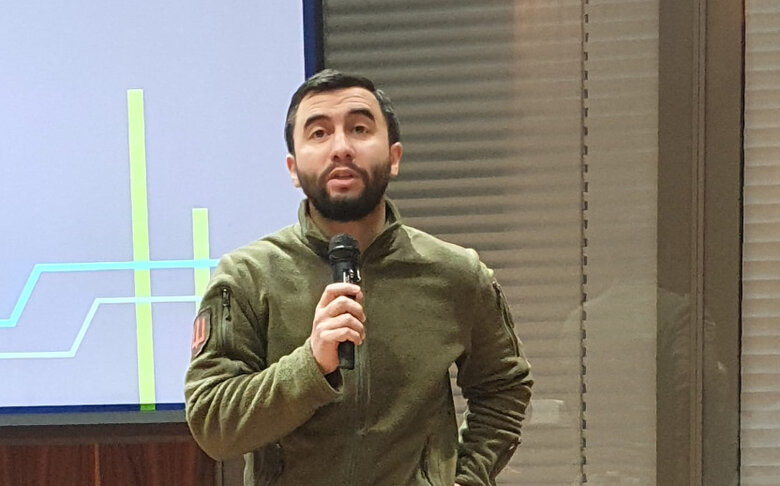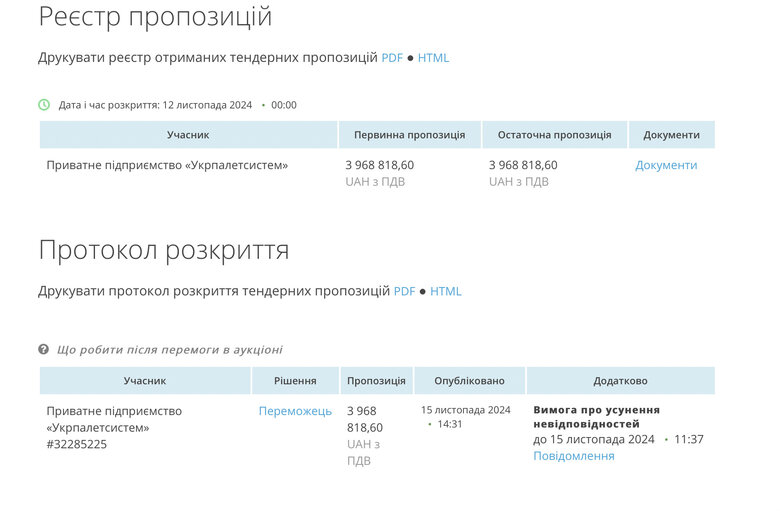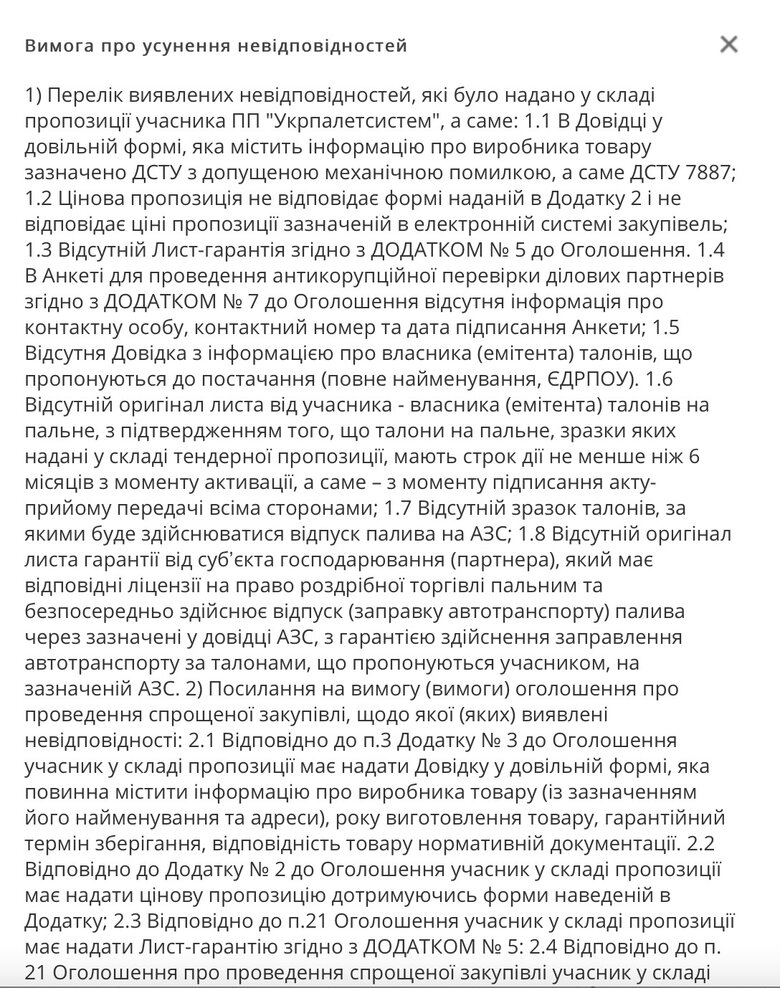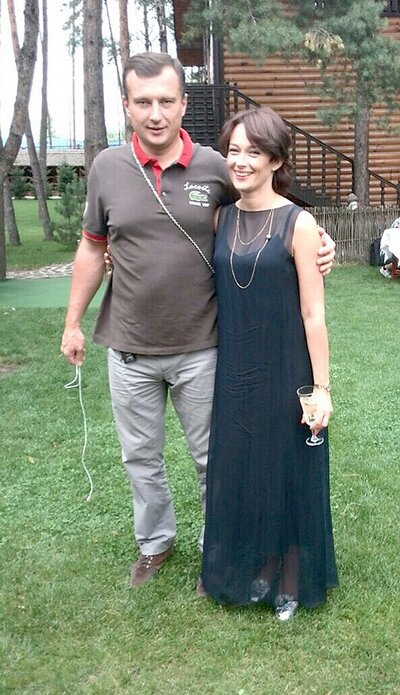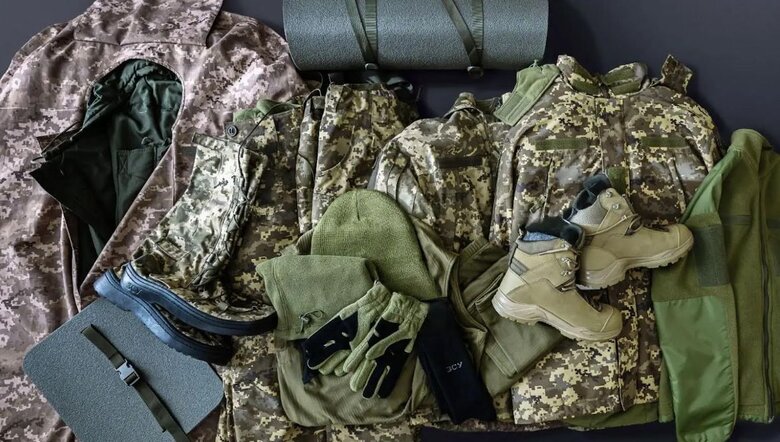Zhumadilov’s year: significant progress, but with contracts for Peoples’ Deputies relatives firms
On Friday, Defense Minister Rustem Umierov announced that Arsen Zhumadilov will now head both the DOT (State Operator For Non-Lethal Acquisition) and the DPA (Defense Procurement Agency)
"Arsen Zhumadilov will be appointed as the Director of the DPA. Over the past year, the DPA and the DOT operated under similar conditions: while one agency fulfilled its mandate, the other merely generated media buzz," the Minister wrote.
As previously reported, back in October, Umierov proposed merging the two agencies under the leadership of Arsen Zhumadilov. At that time, members of the Public Anti-Corruption Council secured a commitment from the Minister to refrain from such merging until the end of martial law. Representatives of the PACC MoD (Public Anti-Corruption Council at the Ministry of Defence) argued that merging the agencies could risk delaying the contracting process.
Nevertheless, the Minister's decision on Friday, along with the entry of Zhumadilov into the registers as the head of the DPA, compels a thorough review of the Agency's performance over the past year—and whether it has truly been effective.
It is worth recalling that the concept of both agencies originated during Oleksii Reznikov's tenure as Minister, following procurement corruption scandals. It was also under Reznikov’s leadership that Zhumadilov was introduced as the intended head of the agency for procuring non-lethal goods.
However, the State Operator For Non-Lethal Acquisition was launched under Minister Umierov. Whereas the head of the DPA, Volodymyr Pikuzo, was dismissed—not so much for inefficiency (although it is hard to talk about efficiency), but because he belonged to the previous team.
One of the first initiatives of Zhumadilov's team was a reform of the military catering system. However, the reform plan proposed by the young team, which largely came with Arsen from Medical Procurement of Ukraine, was rejected by the Logistics Forces Command and Deputy Minister Vitalii Polovenko.
Subsequently, the DOT attempted to conduct tenders on the ProZorro platform using new criteria, but the old suppliers nullified the process in court. During the second attempt at bidding, these suppliers completely withdrew their proposals and delivered an ultimatum to the Minister.
The DOT was forced to contract through direct agreements, (which inherently lacks transparency). However, the situation worsened when, within the first three weeks, the new suppliers systematically failed to meet delivery obligations, leaving the army at risk of running out of food.
It should be noted that there were multiple reasons for the disruption, including opposition from food executive officers, yet the supply issues were acknowledged by the DOT, prompting immediate supplier replacements. At the same time, previous suppliers returned to the fold. Again under direct contracts.
According to high-ranking sources, Umierov saved Zhumadilov from dismissal and a public scandal over the disruption of food supplies to the army, averting a larger political scandal.
Admittedly, after this episode, the DOT became more cautious in its actions and public statements.
Over the past year, the State Operator for Non-Lethal Acquisition has been involved in several high-profile scandals, such as the purchase of overpriced flasks and the supply of low-quality meat and stew to the frontlines. In the case of the flasks, the DOT had limited options due to an urgent request from the LFC (Logistics Forces Command), which necessitated a direct contract.
As for the low-quality food, the DOT terminated its contract with Trade Granite Invest. However, the inclusion of the company in the official blacklist of contractors yielded no tangible results. Representatives of the PACC MoD and the AntAC (Anti-Corruption Action Center) had already warned Zhumadilov's team during the preliminary decision phase that the DOT would likely lose such a court case.
These seem to be all the massive media scandals of the DOT.
If this is how we evaluate effectiveness, then there were probably more weapons scandals.
But we can also look at other factors.
Since the Independent Anti-Corruption Commission has been actively analyzing the procurement of the DOT in recent months, the author has studied more than 300 procurements of the State Operator For Non-Lethal Acquisition. This, as well as the responses of the rear Purchasing Agent to inquiries, allow us to draw a certain picture.
Let's start with fuel, perhaps.
It is worth noting that here the DOT has achieved a significant increase in the openness of tenders. It has 21 direct contracts for 148 competitive procedures. Whereas its predecessor, the Department of Public Procurement, had a ratio of 58 competitive to 39 direct contracts.
In addition, DOT managed to reduce prices further.
A month ago, the results of the audit in this area were made public.
"The competitive procedures for the procurement of fuels and lubricants conducted by the DOT from the beginning of 2024 to September resulted in budget savings of over UAH 867 million. At the same time, the cost of the DOT's activities in this area was less than UAH 60 million," said Oleksandr Tytkovskyi, Director of the Internal Audit Department.
At the same time, it should be noted that this reduction in price is mainly due to the fact that the DOT is the only one in the country that buys fuel without VAT. Moreover, the reduction in prices is largely due to the fact that the state-owned Ukrnafta supplies fuel to the MoD (having been managed by the MoD since autumn 2022) at prices well below market prices.
However, if you start analyzing the bidding documents, you can easily find out that almost every contract of Ukrnafta was extended and the delivery dates were postponed. This company has the largest number of additional agreements (which are classified as corruption risks by the MoD's anti-corruption programme).
Given that contracts are constantly stipulating unrealistic delivery dates of one month, this is not very surprising.
Other things are strange.
Last autumn, the DOT started purchasing fuel with coupons. It would seem that the big chains should have already joined in. But for some reason, they have not.
On 24 October, the Agency announced the purchase of A-98 motor petrol in coupons with an expected value of 3.9 million.
Only one bidder came forward—Ukrpaletsystem Private Enterprise—which signed a contract for an amount that matched the estimated value (3,968,818.60 UAH).
The price per litre of petrol was UAH 53.3. At the same time, according to the Enkorr website, UPG gas stations (Ukrpaletsystem is a member of this group) sold this type of fuel for UAH 56.90 per litre (the price without VAT would be 45.12). That is, the expected price at the DOT was higher than the market price.
This is a large volume of purchases.
That’s not all. When the contract was signed, the company was asked to correct a significant number of inaccuracies in its documentation. Considering these factors—an expected price higher than the market rate, only one participant (who had previously traded fuel from the Republic of Belarus), and errors in the submitted documents—the bidding can hardly be considered exemplary.
A month ago, Censor.NET already wrote about another strange episode with oils. Back then, the DOT confused the procurement code and as a result, only one company, Resourse Oil-A, came to the auction. The lot price was UAH 28 million. This is half of the total amount that the company bargained with DOT.
At the time, the DOT blamed the incident on human error.
But it was not the only one: on the website, there are remarks from the DOT about correcting inaccuracies for the company. One of them states that 'the proposal includes a file titled "10_DPS.pdf" which does not comply with the requirements of Annex No. 8 to the Announcement, specifically that the document is dated PRIOR TO the publication of the announcement for the simplified procurement.'
Of course, technical errors occur in documents. However, in the context of the fact that only one company submitted a bid due to a 'human' error and the price remained the same, the presence of a document dated earlier than the auction may indicate that the company knew about the tender in advance.
As stated in the response of the DOT to the request of the NAKO (Independent Anti-Corruption Commission), RESOURCE-OIL-A LLC is at the top of the list of oil suppliers to the Ministry of Defence, with 9 state contracts, of which 8 were concluded as a result of simplified procurement, and 1 state contract was concluded without the use of open tenders and/or an electronic catalogue.
Maryna Eremieieva, purchaser of fuel and lubricants at DOT
In addition, DOT purchased 270 tonnes of nitrogen oxide reductant AdBlue from this company, with lower-priced offers rejected in both auctions.
There is one more fascinating thing: Resource Oil A is located in the village of Hrebinky in Kyiv region, at the same address as the facilities of Ahrinol, a company associated with People`s Deputy Oleksandr Ponomarov, who was suspected of treason two years ago.
But it seems that this is still an asset of former People`s Deputy Valentirov, who had a falling out with Ponomarov a couple of years ago.
These are not all the interesting nuances.
As noted above, the DOT has a good rate of open procurement - somewhere around 90%. It is against this background that it is most surprising that one of the largest suppliers of oils is KSM Protek.
Why is it strange, because you won't find any tenders with it.
According to Prozorro and Youcontrol data, this company was not contracted through the open bidding system. It apparently had only direct contracts.
It should be noted that the founder of KSM Protek is KSM-Trade, which is owned by Tatiana Bushai, the wife of Oleh Seminskyi, a member of the Servant of the People party, as well as Vitalii Sukhan, Ihor Atroshchenko, Ihor Hutsan and Volodymyr Atroshchenko.
Isn't it true that we haven't had any scandals over direct contact between relatives of People`s Deputies for a long time? Right from the time of the jackets from the company of a relative of People`s Deputy Kasai.
The fact that cartel collusions are consistently detected at these tenders, as well as others, and remain beyond the AMCU's monitoring due to the simplified procurement procedure, will have to be addressed another time."
But that's enough for now - let's move on to other topics.
Let's not talk about food. It was recently - Hlyniana is very much alive there.
On the provision of clothing.
A month ago, Censor.NET published an article about how several companies had failed to supply the Ministry of Defence with clothing. It was about the supply of winter jackets, ponchos and camouflage suits.
Let's recall the history of these procurements. Back in March 2024, the DOT held tenders for ponchos (storm clothes). The bidding was held in three lots. It was highly competitive. To give you some idea, while 4-8 companies typically participate in such tenders, this time, 14 and 15 companies competed. The first lot for the production of 100,000 ponchos was won by MIK.
And the other two lots - for 150 and 50 thousand - were won by Ukrspetstekstyl, registered in October 2022. Its director is Oleksii Slaboshpytskyi, and its founders are Vladyslav Kysh and Olena Zvychaina. The authorized capital of the company is UAH 2000. Companies with this level of capital are usually considered risky.
2 tenders for ponchos from DOT - the company's first victory in public procurement on Prozorro. The SASU (State Audit Service of Ukraine) initiated an audit of the company's documents.
The delivery date was set for June 30. But so far, no one has delivered any ponchos. Allegedly, after consultations with the Logistics Forces Command, the parties agreed to postpone the delivery until October. But as of October, the company had delivered 22,000 ponchos.
As a result, the State Operator For Non-Lethal Acquisition terminated the contract and imposed penalties on the company. The only positive part of this story is that the DOT did not pay the company an advance fee.
But unfortunately, the money saved does not solve all the problems. After all, the ponchos were supposed to be delivered in May, and in mid-November, most of them had not been sewn.
On November 14, DOT announced a new bidding for 13 lots. The bidding for 6 of them did not take place due to the lack of offers. Only 75,000 ponchos were contracted with a delivery date of 13 December. Most lots had only 1 bidder.
With a delivery time of one month, such tenders were already risky, because it was impossible to produce such volumes in such a short time. And often, companies that have prepared for such tenders in advance go for them.
But what happened this month?
As of 13 December, nothing has happened in terms of providing the military with new ponchos. According to the information received from the LFC, out of 75,000 ponchos contracted on 20-22 November, they received 0 products.
Nika Text Plus LLC, which had significantly increased its volume of orders during the era of the Department of Public Procurement, was contracted to supply 20,000 ponchos.
On December 10, DOT approved prepayment under the agreement with Nika Text Plus.
"Prepayment may be made in an amount of up to 100 (one hundred) percent of the value of the Goods under the Agreement or the value of the undelivered Goods under the Agreement for a period not exceeding 30 (thirty) calendar days from the deadline for delivery of the last batch of Goods under the Agreement, as stipulated for the documentary closure of prepayment," the agreement states.
By an additional agreement dated December 13, the companies extended the deadline for fulfilling the agreement to December 20, 2024.
Individual Entrepreneur Kriuchkov, who was supposed to supply the Ministry of Defence with 30,000 ponchos by 13 December, also received an amendment to the prepayment agreement on 10 December, which can reach 100 per cent. On 13 December, the company was allowed to supply 20,000 ponchos by 31 December under a second supplemental agreement. And another agreement dated 18 December amended the details.
Astra Lux company participated in a tender for 10,000 ponchos. The company applied for this lot alone. And, accordingly, it won with the price that was set as an indicative value.
However, the company contracted for only 5,000 ponchos.
On December 10, DOT extended the delivery date to December 23, 2024 by an additional agreement.
Top Text, which was supposed to deliver 20,000 ponchos on 13 December, has not delivered anything as of December 17, and has also received the right to subscribe under an additional agreement.
In addition, the same Nika Text received a delay in the delivery of 10,000 insulated suit jackets. Until December 20, although it was supposed to deliver them, like the poncho, on 13 December.
And on December 10, she also received the right to receive a prepayment through additional agreements.
After reviewing these agreements, the IACC (Independent Anti-Corruption Commission) sent a request to the DOT for information about the payments. It received a reply that the payments were made in accordance with a Cabinet of Ministers resolution that effectively allowed the agency to close the budget year by transferring money "to special non-budgetary accounts of suppliers opened in the State Treasury Service of Ukraine with the approval of the Ministry of Defence of Ukraine".
That is, the supplier will receive these funds only after delivery.
"All suppliers that were supposed to supply goods at the end of December 2024 and in January-February 2025, due to amendments to the CMU Resolution No. 1142 of 03.11.2023 "Some issues of procurement of goods, works and services in the defence sector by the state customer service", received an advance payment from the 2024 budget," the DOT said in a response.
"Regarding the companies mentioned in your letter, we would like to inform you of the following: Individual Entrepreneur Kriuchkov V.E. - under the state contract 390/11-24-RM, a prepayment of UAH 7,550,000.00 was made, under the state contract 389/11-24-RM, a prepayment of UAH 14,200,000.00 was made. Please note that the funds were transferred in the form of a letter of credit. In case of such a prepayment, the funds are transferred to the supplier's treasury non-budget account and can be transferred from the treasury account to their commercial account only in case of delivery of goods and provision of a duly executed and signed acceptance certificate," the response reads.
But the total amount deserves special attention.
"A total of UAH 11,514,979,494.53 was paid in advance in December 2024 in connection with the end of the budget year," the response said.
That is, a significant portion of the money (out of 70 billion budget) was unused due to non-fulfilment of contracts. But we still need to clarify their terms.
However, in some cases, the DOT apparently waited too long for the manufacturer to whom it awarded the contracts.
In the spring, the DOT contracted 75,000 jackets from Farminko, which was supposed to deliver them in June. At the beginning of December, the company just started delivering something to the Ministry of Defence and received quality complaints. To date, these jackets have not been accepted.
In response to a request for a previous article describing the story of the jackets, the DOT stated that the jackets ordered from Farminko accounted for only 2% of the total amount of material assets. But this is actually a manipulation of the numbers.
The problem is that LFC ordered 300,000 jackets this year, which means that the 4th part was not delivered. And the military received the jackets from the stocks of previous years, including 2022.
At the same time, the biggest complaint against DOT is that they did not terminate the contracts for a very long time and were waiting for something. And the most surprising thing is how nervously Minister Umierov himself reacted to Oleksandr Sokolovskyi's question about these supplies. "Everyone has a plan until they get punched in the jaw," the minister replied and asked the suppliers not to put pressure on him.
Anyway, after several months of unsuccessful waiting, the DOT held a new tender, but by the end of December, it was still not receiving deliveries from other companies for the same ponchos. There were also no timely deliveries of plate carriers, personal heating equipment, insulated jackets and underwear.
As of January 17, Individual Entrepreneur Kriuchkov, a private entrepreneur, had brought the army 10,000 ponchos out of 30,000.
"Textile Group" company, owned by Oksana Kydyk, which was founded 2 years ago, failed to deliver 70,000 pieces of underwear to the military as per the June 2024 contract (which was due in November). "Ukrtak" company, under the July 2024 contract, did not deliver a single plate carrier out of 10,000. As of December, Ukrtak had delivered 0 units under three contracts for these same plate carriers, while the contracts were valued at amounts ranging from 250 to 400 million UAH.
In total, this concerns about 36,000 plate carriers.
The DOT has made many steps forward compared to previous MoD procurers, but there is still room for growth and how to overcome risks. And it is also questionable to have one head for two agencies.
Tetiana Nikolaienko, Censor. NET

